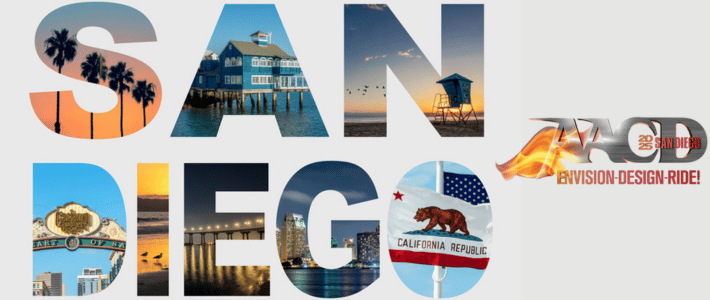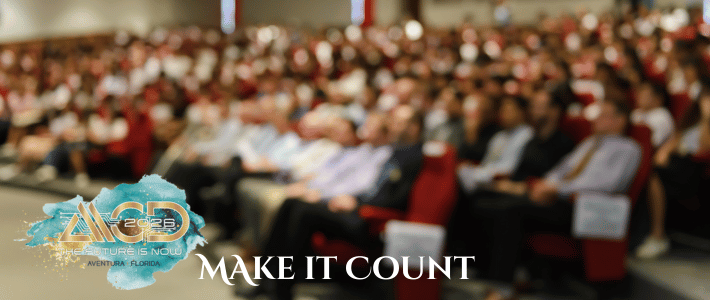
30 Cosmetic Dentistry SEO Questions You Were Afraid to AskApril 7, 2022 by AACD Executive OfficeYou’ve probably heard about the importance of Cosmetic Dentistry SEO time and time again, but you're not sure where to start or even what half of it means. Have no fear; we have got you covered. Below we have listed the 30 most asked beginner questions to help you navigate the big wide world of dental SEO. #1 What is cosmetic dental SEO?SEO is a type of marketing that improves your company's online visibility by increasing the number of visitors to your site. It refers to methods that aid in the visibility of your website and other online assets like your Google My Business account, and social media accounts. The improved visibility in search results will help your practice be found online when potential patients looking for a local dental practice or a specific cosmetic service use search engines like Google, Bing, and Yahoo. #2 Does my cosmetic dental practice really need SEO?SEO is a way of appearing to people who are searching for a dentist using non-direct search phrases. For example, if I search “ABC Dental near me” I’m probably going to find the website for ABC Dental in the search results at the top of the page. But if I search ‘dentist near me’ I’m going to get a mix of local dental practice results. If you’re trying to be found by people searching for non-direct search phrases then you need to do SEO SEO enables your website, social media channels, and Google My Business account to appear high up in the search results. #3 Why is SEO important in Digital Marketing? Search Engine Optimization attracts organic traffic to your website via search keywords. Higher rankings result in higher clicks and more phone calls. SEO should be an integral part of cosmetic dental marketing campaigns. #4 What does SEO stand for?SEO stands for Search Engine Optimization. #5 Technical SEO and On-page SEO, What's the Difference?Technical SEO deals with website programming, web crawling, and indexing of your website. In contrast, On-Page SEO is related to keyword selection, search intent, domain authority, and tags. Both technical and on-page SEO focus mostly on your website optimization. #6 What is local dentist SEO? Local dentist SEO targets users and potential clients interested in local searches for products or services. For example, local SEO would target people located in your area who are searching for porcelain veneers. When you optimize for local SEO the primary online asset that will result in better rankings is your business listing on the Google map. #7 What is a search engine?A search engine helps people find the information they are looking for using keywords or phrases. Search engines can return results quickly by scanning the Internet continuously and indexing every page they find. The most well-known search engines are Google, Bing, Yahoo, and DuckDuckGo. If your website has not been indexed by the search engines, then people using that search engine will not be able to find your website. #8 What does www stand for?"WWW" stands for World Wide Web. The worldwide web (the www prefix on a URL) is a collection of millions of web pages housed on a computer network. #9 What is the Importance of Link Building?SEO experts link their websites to other websites in order to improve search results and credibility. Linking makes it easier for Google to search, and the results become more relevant. Another way to think about links is that they are like a vote of confidence. If you have lots of inbound links to your website then search engines will see your website more valuable than other websites. More links = Mo’ betta. #10 What is the Purpose of Internal Links?Internal links are that reside within your website. They interlink all the website data to help Google crawl and optimize all content on your website, which includes your blog. Internal linking also helps Google to understand which are the most important pages on your site, and which helps your website to rank for certain keywords. #11 What is image alt text?Alt text or alt description is a written copy for an image on a webpage and describes what the image represents. Alt text is important because search engines do not recognize images, so the alt text tells the search engine what the image is about. One way to check the alt text of the images for your website is to run your website through a website grader. #12 What is a landing page?A landing page is the main web page that a user lands on when he or she clicks on a link from a marketing campaign. This link can be from an ad, another website, or other sources. The two primary goals of a landing page are lead generation and conversion. #13 What are organic results?Organic search results can also be called natural search results. These results are not paid for. When a user searches for something on Google, the results displayed without an "Ad" mark are organic search results. If your page ranks organically or naturally, it means that your on-page and off-page SEO strategy is working well. #14 What is web crawling?Web crawling is the process where a Google bot crawls the World Wide Web for information. It can also be called a spider and indexes or updates pages. #15 What does URL stand for?URL stands for Uniform Resource Locator. It’s your domain name. #16 What is a SERP?A SERP stands for Search Engine Results Pages. SERPs are the pages displayed by search engines in response to a query by a searcher. #17 Am I using the correct number of keywords?Unfortunately, there is no "correct" number for keywords on a page. Search engines do not publicize a target keyword density percentage, so you must use discretion and best practices to guide you. Most SEO experts believe that an ideal keyword density is around 1-2%. Meaning the target keyword appears about one to two times per 100 words. At this rate, the keyword appears enough times to show search engines what the page is about without engaging in keyword stuffing. #18 What is a long tail keyword?Long-tail keywords are specific keyword phrases that searchers will most likely use in a search. They generate far less traffic than root keywords but are very specific and easy to rank for. They generate much better conversions because they are the searches people use when closer to a buying decision. A good example of a root keyword and long-tail would be: Dentist = Root keyword Dentist specializing in root canals = Long tail keyword #19 What is the difference between indexing a website and crawling a website?A web crawler is a program that searches your site. It checks meta-data, links, and other forms of content. The crawler indexes the content so that it can be found in the search engine. So, crawling and indexing are one in the same. #20 How long will it take for me to start seeing the results of my SEO marketing?There are a lot of different factors that play into how quickly a dental SEO marketing campaign works. Some of these issues are:
A large site could see results in a couple of days if search engines crawl their site regularly. If your website is small, it may take a few weeks for the web crawlers to re-crawl your site and index the new pages. #21 Can I do my own SEO copywriting?Absolutely! Use a software plugin to help you out. Yoast is a great tool. I like Rank Math. Both are programs that help to guide your writing for SEO purposes. #22 What is a domain?Domains are a sequence of numbers identifying who, what, and where the website is located. But people can't remember numbers as well as they can recognize words. So domain names have been created as it's easier to remember instead of a long string of numbers. #23 What is a keyword?Keywords, or focus keywords, describe the content on your page. These are the words or phrases search engine users type in to find what they are looking for on the web. Figuring out the list of keywords your potential clients use, and implementing those keywords, will help optimize your web pages to rank higher on search engines. #24 What is keyword frequency?The keyword frequency is the number of times a specific keyword appears on a web page. When optimizing a web page, it is crucial not to use the keyword so much that it becomes keyword stuffing. Overuse of keywords is frowned upon. #25 What is keyword difficulty?Keyword difficulty is a measurement that defines how difficult it is to rank for a specific keyword based on its popularity and competition. The higher the keyword difficulty, the more backlinks are needed to rank. #26 What is keyword density?Keyword Density is the percentage of times a keyword appears on a web page. When the keyword density is higher than recommended, it can trigger search engines to think it's keyword stuffing. So, it is imperative to make sure the keyword density is not too high for any primary or secondary search phrases. #27 What is keyword stuffing?Keyword stuffing is a SEO method that increases the keyword density to a far higher range to rank for potential keywords. Search engines condemn keyword stuffing and, if done, could lead to a search penalty that removes your page from the SERPs. Overfilling your page with keywords won't improve your chances of ranking higher; it will decrease them. #28 What are backlinks in SEO?When a website links to another website, the website that receives the link is called a backlink. Backlinks are an essential SEO ranking factor and come in two types: No-follow and Do-follow backlinks. If your web page gets multiple backlinks from influential dental sites, search engines consider the page to be important to the search query and, in turn, improves your web page's rank. The number of backlinks is important, but the quality and relevancy make a big impact. Not every link is to be followed. A no-follow link has the attributes which tell the google bot not to follow a particular link; however, it is still clickable for a user but not for a bot. Do-follow links have attributes that allow both users and bots to follow them. #29 What's the big deal with backlinks?Google considers backlinks like a vote. The more backlinks a website has, the more influential it is, although the number is not the only factor. Other factors decide how much value each backlink brings to your website, such as:
One high-quality backlink is much more valuable than ten low-quality backlinks. #30 What is a paid result?Advertisers pay for paid results to get their ads to show up above organic results on SERP. Paid results are quick, and there is no need to optimize the website content to rank. The position given is based on your Max Cost Per Click and your quality score.
When first researching SEO, it feels quite literally like jumping into a rabbit hole of endless information you never knew existed before. But don’t let that worry you. Dental SEO is easy once you get the basics down and you put some time and effort into it. No Time? No Problem.If SEO is important to your practice and time is something you don’t have, you’re in luck – My Social Practice is here to help you attract new dental patients through dental SEO marketing. An effective SEO and marketing strategy, tailored to your cosmetic dentistry practice, is one of the best professional investments you can make. |









